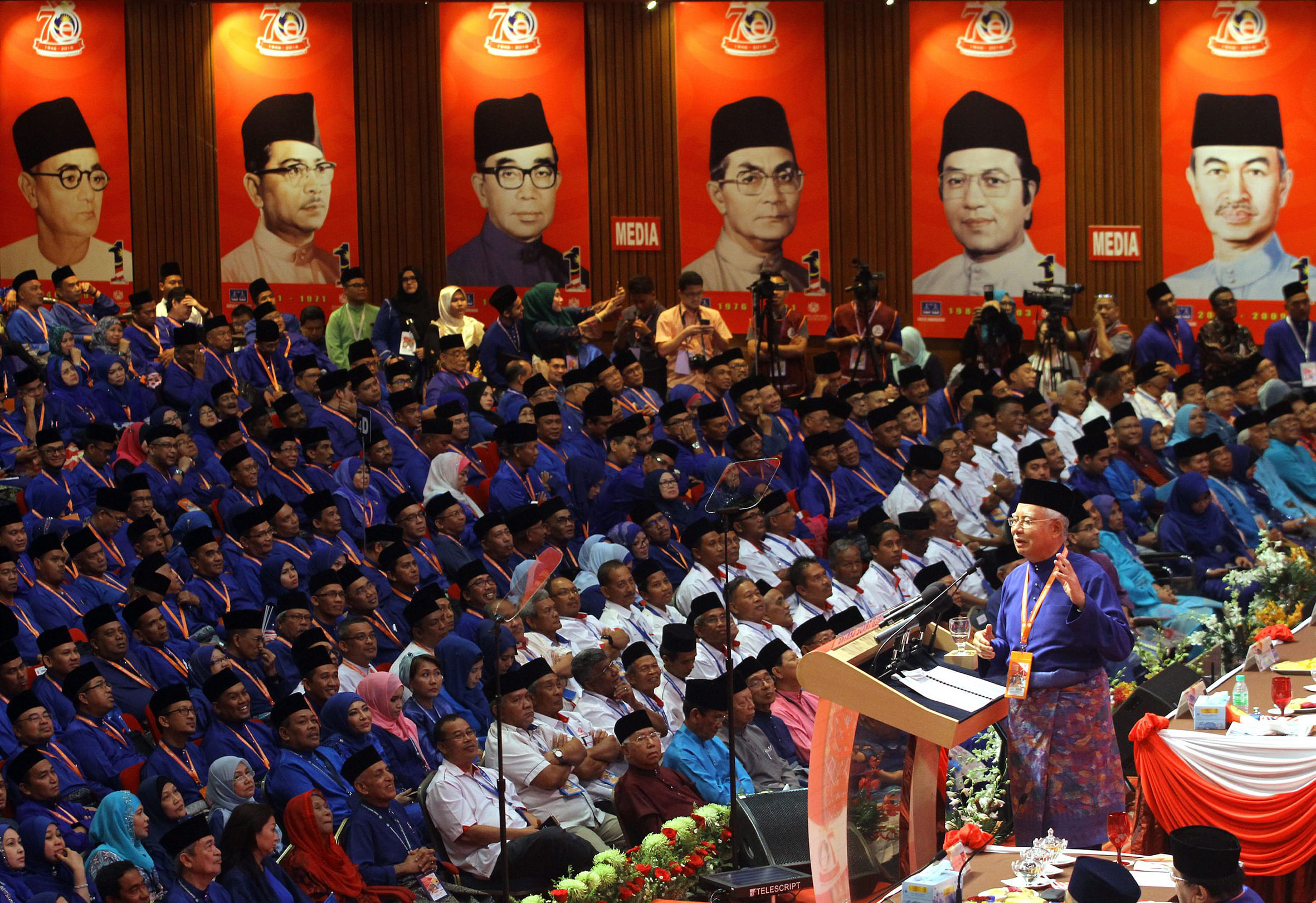There was a time when political parties in Malaysia were clearly differentiated by ideology.
Umno (United Malays National Organisation) struggled for Ketuanan Melayu (Malay supremacy) through affirmative action for Malays and bumiputeras (non-Malay natives), aimed at helping these communities be on equal footing - in economics, business and education - with the Chinese and Indians.
Despite being an ethno- nationalist party, Umno was willing to share power with the Chinese and Indians, represented by the MCA (Malaysian Chinese Association) and MIC (Malaysian Indian Congress) respectively. This multi-ethnic cooperation formed the backbone of the BN (Barisan Nasional) coalition, which has been in power since Malaysia's independence in 1957.
Among the opposition parties, PAS (Parti Islam SeMalaysia) was an Islamist party and its constituents were mainly Malay/ Muslim voters. DAP (Democratic Action Party) was a secular, multiracial party which struggled for equal rights and a Malaysian Malaysia, though a majority of its members were ethnic Chinese.
Later, there came PKR (Parti Keadilan Rakyat), a metamorphosis of PKN (National Justice Party), which was formed during the Reformasi movement. While a multi-ethnic party, it was still a Malay-dominant one and led by former deputy prime minister Anwar Ibrahim's family members and loyalists.
PKR struggled for human rights and social justice, fought against corruption in Umno and was bent on making Anwar the next prime minister.
But how important is the concept of party ideology in Malaysia today? To be sure, Malaysian parties continue to represent their ideologies in name. Yet, the frequency of politicians jumping ship from one camp to another raises questions about the values they really stand for.

Understandably, societies are now more complex, and parties need to accommodate diverse views and make compromises. Coalition building is a norm in modern democracies. However, in the case of Malaysia, politicians move across the political spectrum so quickly that party membership no longer seems to depend on ideology but rather, ties with certain personalities. The irony is that politicians who had for decades struggled for certain ideologies now seem willing to reverse them, or even cooperate with their ideological rivals.
Currently, we have politicians who were once staunch ethno-nationalists struggling for pluralism. There are also devoted Islamists who turned liberal, then went back back to their conservative ways. There are also Umno leaders who were once committed to multiculturalism but now behave like Islamists.
The neglect of political ideology shifts political discourse towards personality-based politics. This means that problems are analysed based on the behaviour of a leader. The solution to problems often comes down to the removal of a certain leader. For example, Tun Dr Mahathir Mohamad, a former prime minister and current leader of the opposition, is going around the country campaigning for Prime Minister Najib Razak's removal from office. The attack on Datuk Seri Najib and his family members overshadows the good that the Najib government has done.
Similarly, personality politics is also evident in the opposition camp. At its recent party convention, PKR reaffirmed its commitment to make Anwar the prime minister if the opposition takes power. Party members carried placards indicating their preference for Anwar to lead the country, causing discomfort to Dr Mahathir and Tan Sri Muhyiddin Yassin, the leaders of Dr Mahathir's Parti Pribumi Bersatu Malaysia or PPBM.
Interestingly, personality politics existed during the Malay feudal era, where loyalty to the leader superseded values and ideas. Stories in the classical Malay texts, such as the Sejarah Melayu (Malay Annals), showcased this principle of loyalty where subjects would defend their masters at all costs, even though it meant sacrificing their lives. For example, during the Malacca Sultanate, Malay warrior Hang Tuah accepted the death sentence decreed by the Sultan even though he was innocent. Hang Tuah eventually escaped the sentence, but came back to defend the Sultan to quell a rebellion by Hang Jebat.
Today, personality politics has led to the fluidity of political party membership. Members join and quit parties simply because they follow their masters or have disagreed with them. The danger is that disagreements are not based on issues or policy outlook. As a result, we have witnessed many political U-turns in contemporary Malaysian politics. Nobody would have thought Dr Mahathir and Anwar's family would ever reconcile. As for Dr Mahathir joining forces with the DAP, that is shocking to many.
Personality politics may result in weak institutions because they revolve around individual members of the elite and are not anchored by institutions. Such politics may also breed populism because power is attained through an individual leader's appeal to the masses rather than through a battle of ideas. Over time, as politicians resort to populist statements to rally the masses, they make contradictory ones, and they are unable to articulate a consistent vision for modern Malaysia.
To this day, politicians are unclear about the status of policies such as BR1M (cash handouts to Malaysians), Act 355 (authority of syariah courts), and whether Malaysia should be a secular state or an Islamic state.
In the long run, Malaysians will bear the brunt of such personality-based and non-ideological politicking.
• The writer is a fellow at ISEAS - Yusof Ishak Institute. He researches on Singapore, Indonesia and Malaysia politics. SEA View is a weekly column on South-east Asian affairs.
